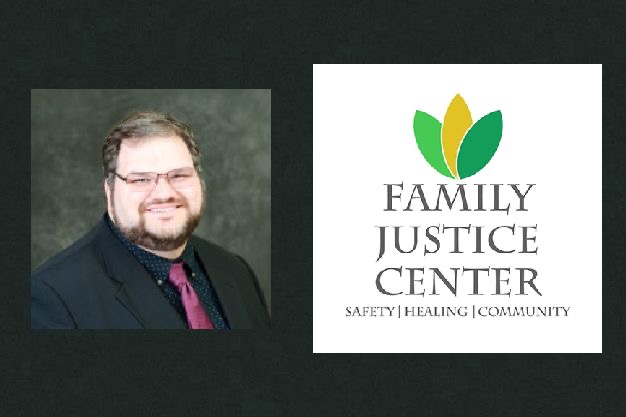A new clinic started here by Diablo Valley College business law professor Mike Kasin and Magdalena Kochanski, an attorney with the Contra Costa Family Justice Center, is helping educate and empower students to tackle the scourge of domestic violence.
The Domestic Violence Clinic that began this semester at DVC consists of a 12-week program where students learn about and practice handling the complexities of temporary restraining orders placed on partners accused of domestic violence.
The clinic stemmed from a partnership between the DVC Community Education Department, Family Justice Center, Bay Area Legal Aid and the Contra Costa Bar Association. Funded by $10,000 in contributions from the Rotary Foundation and the Diablo Valley College Foundation, the course is free of charge to all students who enroll.
As part of their study, students become familiar with a 125-page packet containing various types and degrees of restraining orders.
Kasin said he was motivated to start the Domestic Violence Clinic based on his early experiences as a teenager, watching the trauma suffered by his older sister who became a victim of domestic violence.
“From the time I was 13 to 19, she disappeared,” said Kasin, recalling the years of torture that afflicted his family. “My dad went through every emotion that you can imagine.”
Kasin described the spring day when a letter arrived at the household, stating, “Happy Fathers Day, you’re going to be a grandpa.” After they rushed to the return address listed in Las Vegas, his family initiated a restraining order on the father, in order to protect his sister.
Fast forward to last year, when Kasin met Kochanski at a Bar Association event and proposed starting a domestic violence clinic at DVC. Kochanski quickly got behind the idea and agreed to teach the classes pro bono.
According to Domesticviolencestatistics.org, someone in the U.S. suffers from domestic violence every nine seconds. However, Kochanski said, the legal response time lags far behind.
“On average, a victim of domestic violence has to wait three weeks to get the restraining order put on their partner,” Kochanski said.
By giving students the knowledge they need to address incidents of domestic violence, Kasin and Kochanski said they hope victims will be able to get better support faster.
Following their completion of the program — which includes six weeks of instruction in writing temporary restraining orders, followed by six weeks of work writing actual TROs for abuse survivors — students can enroll in a semester-long course at DVC where they work hands-on with domestic violence survivors in cases brought by the Family Justice Center and supervised by an attorney.
“We’re helping anybody who’s interested and we want to spread the knowledge about restraining orders,” Kochanski said.
In the future, Kasin said he hopes to see the program expand beyond temporary restraining orders to cover other areas of domestic violence training.
“[We] would also like to do more with the DACA students and immigration law,” he said.
If you or someone you know is suffering from domestic violence, you can contact the National Domestic Violence Hotline at 1-800-799-7233.










































































Michael Kasin • Oct 19, 2023 at 11:43 am
Thank you for this wonderful article! Just one quick clarification, the program is for 12 weeks, 6 weeks instruction on how to write TROs, 6 weeks actual hands on work, writing TROs for survivors.
Anonymous • Oct 19, 2023 at 11:34 am
Really nice to see Professor Kasin, and the school doing this. It’s important to see the schools support on matters like these.